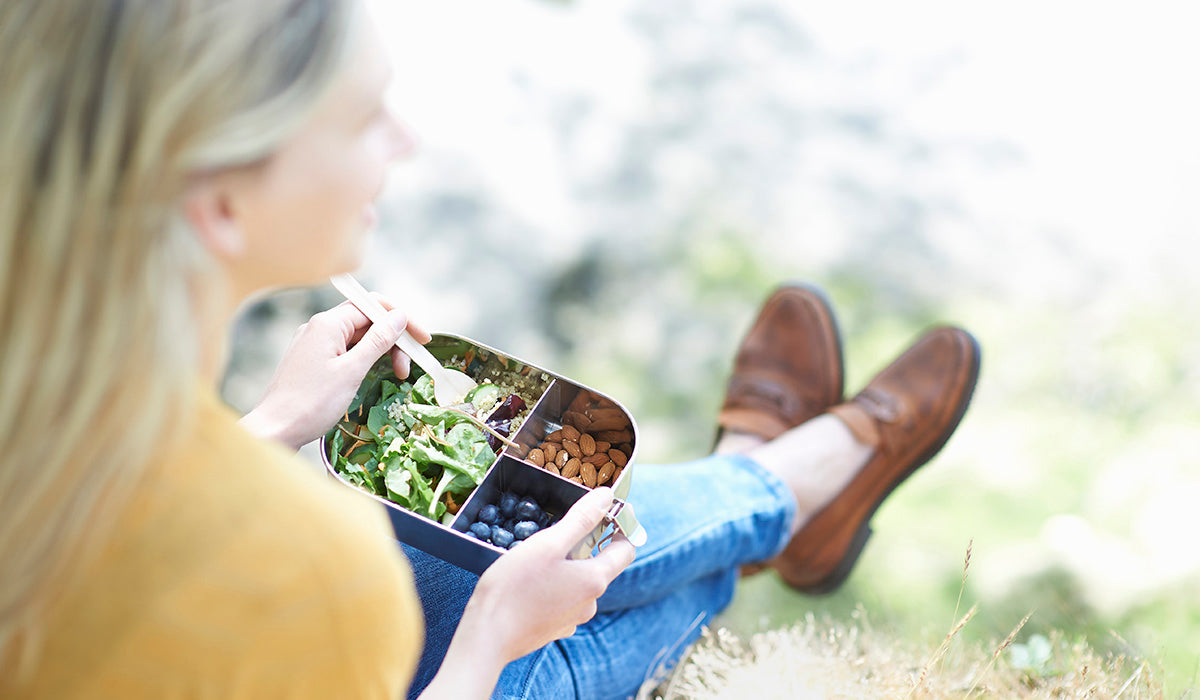People who follow a vegetarian diet, who eat dairy and eggs but avoid all other animal products, are typically very aware of the foods they eat. But because animal-based proteins are traditionally good sources of iron, vegetarians may find that they have an iron deficiency and need to take a supplement to boost their iron levels. Data from the NIH shows that vegetarians may have a high prevalence of depleted iron stores and more iron deficiency anemia than non-vegetarians. But let’s not get ahead of ourselves! For vegetarians concerned about getting enough iron, we suggest starting with a healthy iron-rich diet and then exploring if a high-quality iron supplement is for them.
How can vegetarians increase iron levels?
For a vegetarian, a healthy, iron-rich diet is key. Foods like cooked spinach, cooked mushrooms, legumes, lentils, tofu, avocado, nuts, and whole grains are high in iron. Eating a diet loaded with nutrient-dense foods like these will help. On the flip side, certain foods make it harder for the body to absorb iron. These foods include coffee and tea (even decaffeinated), dairy, foods high in fiber, wine, and beer.
To increase your iron intake, it’s helpful to know how iron affects the body, or more precisely, how not enough iron can affect the body. Iron (or Ferritin) is a mineral that is essential for human growth and development. The body uses it to make hemoglobin and some hormones, and it presents in two forms in food: heme iron (animal-derived) and non-heme iron (plant-derived). Heme iron, found in animal protein like meat and seafood, is typically easier for the body to absorb. It’s found in the blood protein and hemoglobin, just as in humans. Non-heme iron, from plants, is found in foods like beans, nuts, vegetables and fortified cereals. Sufficient iron is needed to make hemoglobin, which helps red blood cells carry oxygen throughout the body.
Who is at Risk for Iron Deficiency?
While a vegetarian or vegan diet does not necessarily lead to an iron deficiency, it can increase the risk. But diet isn’t the only concern. Certain groups are more likely to be iron deficient, like athletes, recent blood donors, pregnant women, and women of reproductive age who suffer heavy periods.
What Do I Do If I am a Vegetarian and Iron Deficient?
Know the numbers. The Recommended Intake of iron for women aged 19-50 is 18 mg of iron per day, with a recommended 8 mg per day for those over 50, with an additional 80% for those vegetarian or vegan. That means 32 mg iron per day for those aged 19-50 and 14 mg iron per day for those 50+. However, it is recommended that vegans and vegetarians consume 1.8x the amount recommended for meat-eaters. That means 32 mg iron per day for those aged 19-50 and 14 mg iron for those 50+. The reason for the higher intake is because it’s estimated that iron absorption in meat-eaters is 14-18%, while non-meat eaters’ absorption is only 8-12%. Vitamin C helps the body's ability to absorb iron. Foods like citrus fruits, chard, broccoli, bell pepper, strawberries, kiwi, tomatoes, melon, and papaya are high in vitamin C.
A medical provider can order blood work to determine if taking an iron supplement is recommended. For vegetarians with a known iron deficiency, supplementation is key. MegaFood’s best-selling Blood BuilderⓇ iron supplement is shown in a clinical study to increase iron levels without side effects†* - and, because variety is key, the Blood BuilderⓇ family includes convenient minis and a one-daily liquid. All three options are formulated to be gentle on the stomach.*
It’s very possible to be a vegetarian and have adequate levels of iron, but the key is to aim for a balanced diet and quality supplements where appropriate. Working with a doctor to monitor iron levels and leading a healthy lifestyle is key for those who live a plant-based life (and everyone else, for that matter!), as is staying informed about the body’s unique needs, and meeting them in the best ways possible.



Leave a comment
This site is protected by hCaptcha and the hCaptcha Privacy Policy and Terms of Service apply.